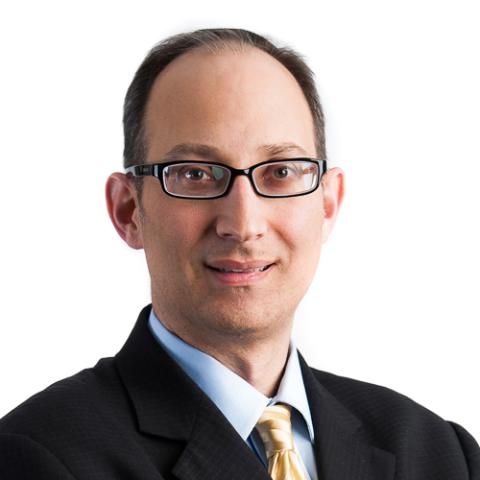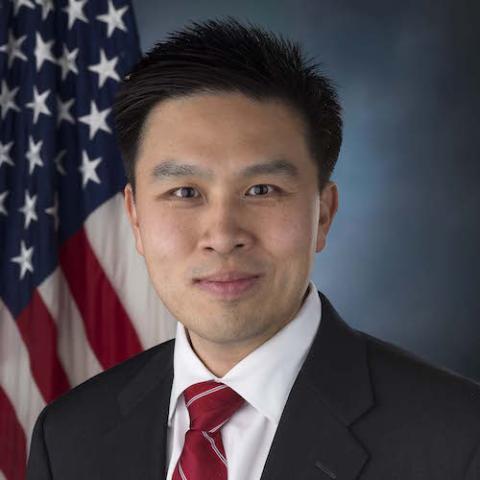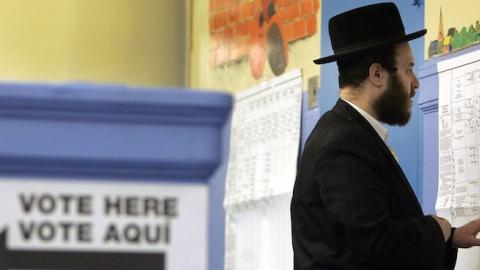Many of this year’s college graduates will cast a vote in a presidential election for the first time in November. If they are Jewish or Asian-American, as we are, the odds are that they will vote Democratic. Among Jews, 78% backed Barack Obama in 2008, and 70% did in 2012, despite a foreign policy that at best could be described as rough on Israel. Asian-American support for Mr. Obama grew between 2008 and 2012, from 62% to an even more lopsided 73%. What accounts for this overwhelming support for Democrats? Several reasons are typically given for Jewish loyalty to the Democratic Party: President Harry Truman's post-World War II support for Israel; the socialist tendencies brought by Eastern European Jewish immigrants; fear of Christian anti-Semitism; and the Jewish attachment to tikkun olam (literally, “repair of the world,” but often conflated with social action).
Liberal commentators are fond of associating the more recent leftward tilt of Asian-Americans with hostile rhetoric toward immigrants coming from some Republican candidates, as well as support for progressive positions on issues such as health care, economic policy and even racial preferences. But the Asian-American community is diverse and includes many different ethnicities—from Indians to Chinese to Vietnamese—that cannot be characterized as having a monolithic view on any of these issues.
So what accounts for the predominance of liberalism among both Jews and Asian-Americans? Perhaps it’s higher education. In the U.S. population at large, the possession of a college or postgraduate degree has been a predictor of Democratic Party affiliation. We believe, in particular, that the liberal leanings of many professors at elite schools likely play an important role.
Jewish and Asian parents have long pressed their children to attend top universities. Despite obstacles like higher standards for admissions, both groups are disproportionately represented at those schools. Though they account for only about 2% of the U.S. population, according to Hillel’s Guide to Jewish Life at Colleges and Universities, Jews represent 10% of undergraduates at Princeton, 12% at Harvard and 27% at Yale. Asian-Americans are about 5% of the U.S. population, yet make up 22% of the class of 2019 at Princeton, 21.8% at Yale, and 21.1% of the admitted class at Harvard.
Once there, these students—who have heard for their whole lives about the importance and perhaps even near divinity of these elite schools—are exposed to unrelenting progressive messaging from many of their professors, administrators and fellow students. No surprise, then, that after four years they emerge as liberals, vote for Democrats and retain their political affiliation well into adulthood.
These political affiliations remain despite socioeconomic factors that might suggest greater support for conservative causes and candidates—and wariness of Democrats who seem to regard success as shameful and higher taxes as a cure-all. For example, 25% of Jewish households in the U.S. have annual incomes over $150,000, according to a 2013 Pew Research Center survey, compared with only 8% of American households generally. And despite differences between different ethnicities, the Asian-American median household income of $72,689 is about $20,000 higher than the U.S. average, according to U.S Census Bureau data.
The progressive proselytizing during the college years doesn’t always have the intended effect: Both authors of this piece emerged from Ivy League institutions as staunch conservatives. One of us even teaches at an elite university. But we can also attest to the veneration these schools were granted in our childhood homes.
Will this trend continue in the decades ahead? It’s impossible to say, but it’s not too soon for Jewish and Asian freshmen to start thinking about where their long-term interests lie. To them we say: Congratulations on your achievement, but don’t let it cloud your political judgment. Now that you’re heading to university, you need not sublimate your own views to impress your professors or others around you. College is an opportunity to explore, question and think—not merely to accept as dogma all that is heard in the classroom and on campus.
While parents have every reason to be proud as well, they should maintain a watchful eye. Those college-tuition payments should be going toward their children’s education, not their indoctrination.


















